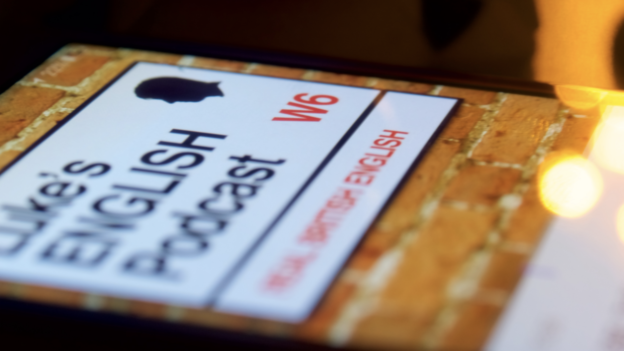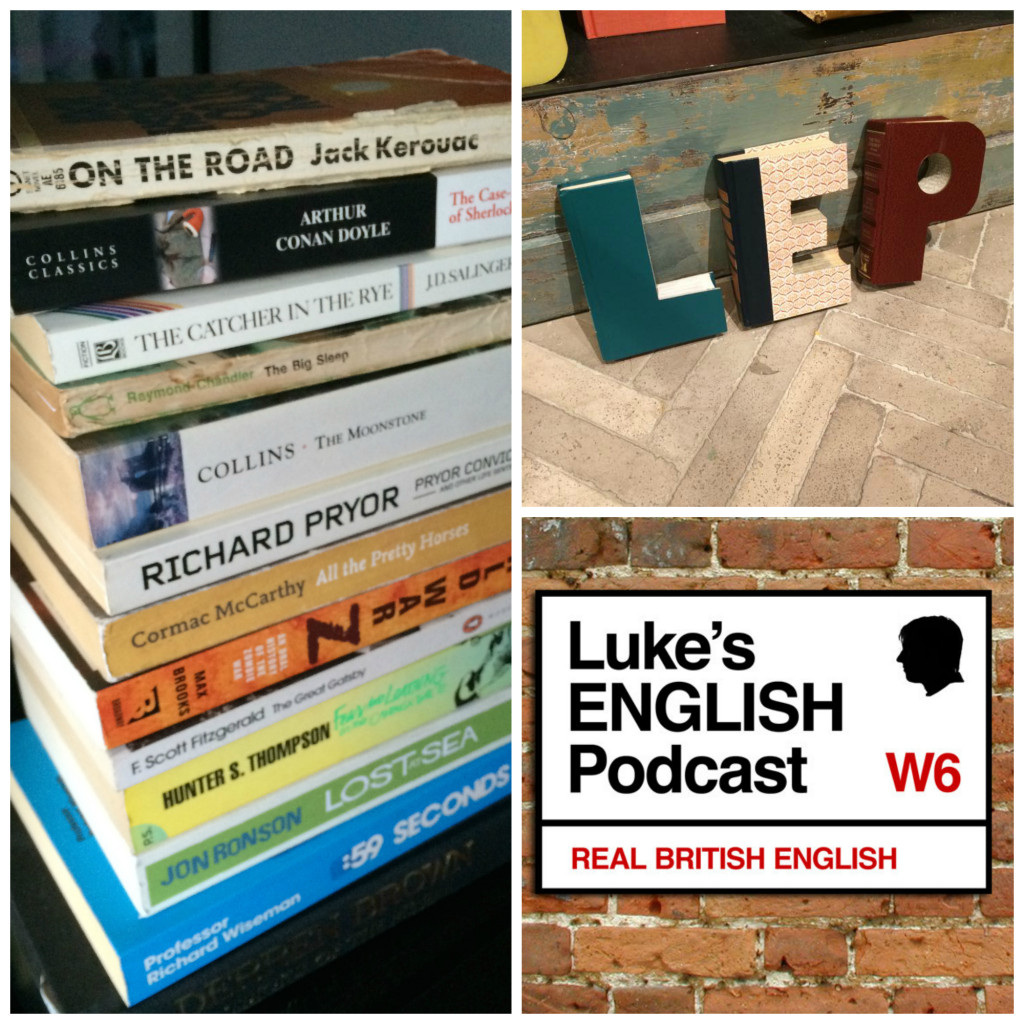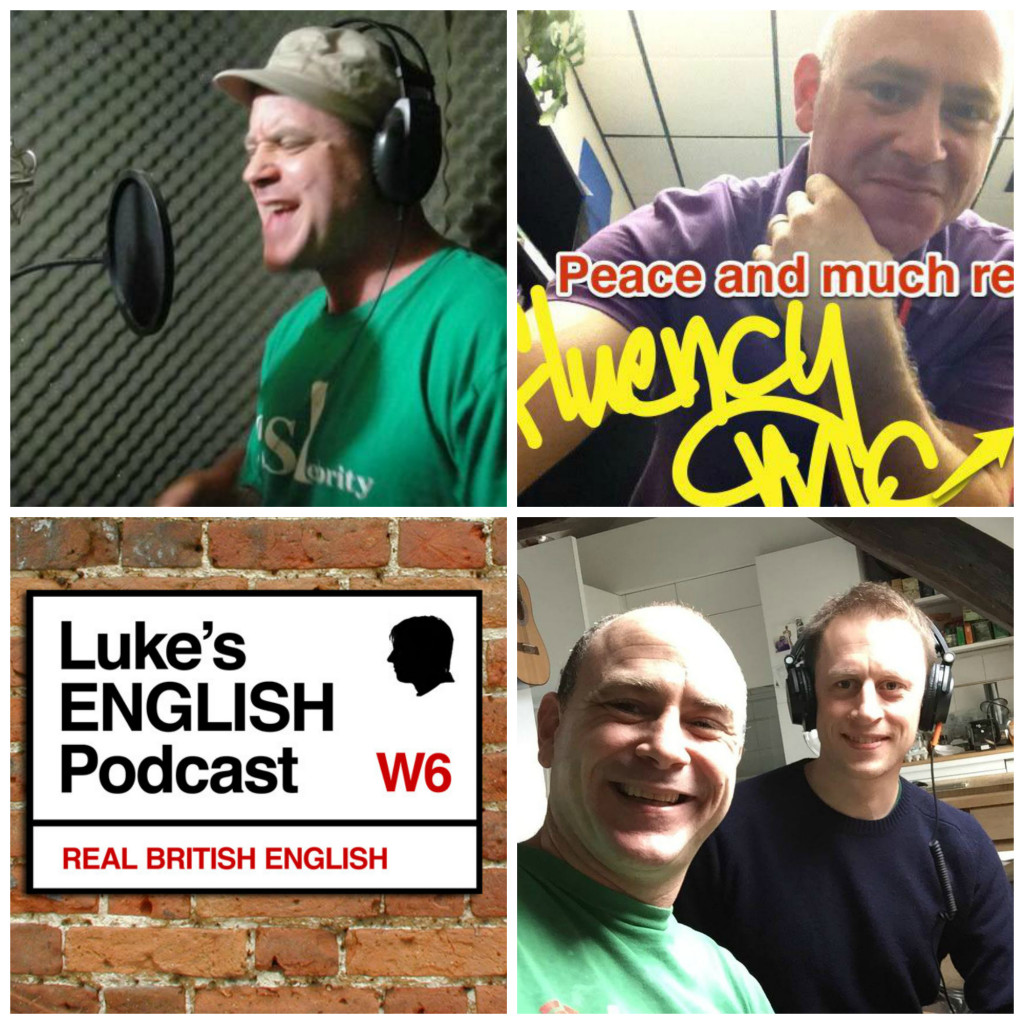This episode contains stories and descriptions of my recent holiday in Thailand. You’ll hear some facts about Thailand, some descriptions of Bangkok and a few stories about funny experiences that happened while we were there. Part 2 is coming soon. More details and transcriptions below. Enjoy!
 [DOWNLOAD]
[DOWNLOAD]
Transcript
Hello everybody, I’m back from my holiday so here is a brand new episode for you to listen to. If you’re new to Luke’s English Podcast, then “hello” and welcome to the show. I have no idea how you found the podcast. It was probably on the internet, that’s how it normally happens. I doubt that you actually tripped over it in the street or anything. Oops ,what’s that – oh, it’s Luke’s English Podcast. I might as well have a look. You probably found it online, perhaps through iTunes or a friend recommended it to you perhaps. In any case, regardless of how you found me, welcome. My name’s Luke – and this is my podcast. It’s primarily for learners of English although I also have native English speakers listening to this too. In these episodes I talk to you in a personal way, telling stories, sharing some things about my life, discussing different topics, teaching you English and giving you the motivation to improve your English for yourself. I try to keep the podcast varied and I’m willing to talk about pretty much anything at all as long as it’s interesting. I’m an English teacher from the UK. I speak British English – with a standard accent from the South East of England. I’ve been teaching for more than 15 years so I have lots of experience to draw from. I’m also a stand-up comedian which means that when I’m not teaching English or doing the podcast I like to stand up in front of audiences of people and make them laugh with jokes and stories and things. I regularly perform comedy shows in Paris.
One of the principles which underpins what I do in episodes of this podcast is the understanding that simply listening to natural, spontaneous speech is a vital part of the process of learning English to a good standard. Obviously, you have to get an understanding of the grammar rules, develop an extensive set of active vocabulary, practise pronouncing the language and so on, but doing plenty of listening is an essential foundation. I usually recommend that LEP is best enjoyed as part of a balanced study program. For example I suggest that you also do plenty of speaking in order to activate the English that you passively pick up from these episodes. There are lots of ways to improve your English and you can just listen to previous episodes of the podcast to get my advice on that. At the very least, you can just relax and enjoy listening to my words on a regular basis, and I hope that it’s a fun process too. Certainly, I am sure that my podcast can really help all the other aspects of your English, not just your listening. I also believe it’s important to listen to English which is spoken at a pretty natural speed, which is spontaneous (i.e. not just written from a script) and I think you should listen regularly for fairly long periods, long term. Make it a part of your lifestyle to listen regularly and don’t give up.
I want my podcast to help you to do exactly those things, and so I try to make my episodes genuine, personal and humorous. So, if you’re new to the podcast – welcome and thanks for listening. I hope you stick with it. I believe that if you do continue to listen, you’ll see significant results in your English. Check out the episode archive on my website teacherluke.co.uk and you’ll see that you have plenty of other episodes to explore and enjoy.
If you’re not new to the podcast, and you are in fact a long term LEPster then welcome back! How are you? I hope you’re well. Did you have a good August? Have you listened to all the episodes I published before I went away? I hope so.
In any case, here is a new episode of this podcast and it is about my recent holiday in Thailand.
Holiday in Thailand
Yes, we went to Thailand this year and I’m going to tell you about it in this episode. In fact, in this one I’ll talk about these things:
- Why we went to Thailand
- Where we went in Thailand
- The things most people know about Thailand
- Some things you might not know about Thailand
- A few anecdotes about what we did and saw during the holiday
- A few dodgy jokes!
- An embarrassing story involving nudity
- A sad old memory that came back to me at a specific moment in the trip
- A mouse-related update (if you heard the last episode of the podcast, this will make sense to you)
We got back just the other day. I’m still a bit jet-lagged. I woke up at stupid o’clock this morning. My body is still on Thailand time, so at about 5AM my body woke up saying “hey it’s time to get up and go walking around temples in very hot temperatures! We’re on holiday come on!” No doubt I will randomly fall asleep this afternoon when my body decides that it’s bedtime. I have a sun tan – correction, I had a tan, until the flight back. As a very white English man, I have a slightly tricky relationship with sun tans. At the moment I am sporting the typical English man’s tan.
I have no idea how long this episode will be but I can just split it up into different chapters and it’s all good.
You will find some of this episode transcribed on the episode page on my website. Not all of it is transcribed, but a lot of it is, and you can read my notes too, which might be a good way to check out the spelling of any words you hear me use. They might be written on the page. By the way, if you’re just reading this – I strongly recommend that you listen instead of reading. Remember, anything that is written here is supposed to just accompany what I’m saying in the audio recording.
Why did we choose Thailand?
– My wife and I wanted to go somewhere exotic and far away (we want to explore places which are a bit further before we have kids)
– A break and a chance to get away from it all
– Never been before
– We like food !
– It’s quite diverse in terms of the things you can do – city, culture, beaches
– It’s not too expensive
Why didn’t you do an LEP Live event?
It was a holiday – so I was not working. That means I didn’t organise some sort of LEPster meet-up, or live podcasting stand up comedy extravaganza. I didn’t meet up with Olly Richards even though I have since learned that he was out there too learning Thai – no, it was all about walking around sweating, visiting temples, sweating, exploring street food markets, sweating, worrying about food poisoning, sweating, going to the beach and sweating there, learning how to cook local food, eating the local food with lots of chilli, sweating, doing yoga and meditating, drinking water and sweating! Just the average holiday abroad for a British person!
Where did you go?
In a nutshell, here’s where we went.
Bangkok for a few days, then up north to Chiang Mai for a few days, then down south to Koh Samui for a few days and then back to Bangkok for a few days and then home! Boom!
That’s the usual tourist route. It’s Bangkok in the middle, temples, treks into the forest, elephants, night markets and cooking classes in the north, then islands, beaches, diving, snorkelling and full moon parties in the south.
We didn’t go to the islands on the west side like Phuket because of the climate in August.
Also, just before we left and even while we were there, there were some explosions – some bombings, which was a bit worrying. We even considered not going, but then we thought – well, we live in Paris and we’ve got as much chance of being blown up there as in Thailand, so what the hell!
In fact our time was very peaceful.
Usual things people think about Thailand
The most typical clichés or stereotypes about Thailand: Busy, crowded, amazing food – specifically green curry and pad thai noodles, weird sex tourism in Bangkok, ladyboys, bizarre sex shows involving ping pong balls, full moon beach parties, buckets full of ridiculously full cocktails, kickboxing, temples, westerners being locked up in prison for drug possession, scooters, Sagat from Street Fighter 2 (Tiger uppercut), snakes, golden buddha statues, amazingly friendly and smiling people and the film “The Beach” starring Leonardo DiCaprio.
That’s partly true (perhaps for the average western tourist) but obviously it’s not the full picture, especially for the locals. I will go into more detail about what it’s really like in this episode.
Things you might not know about Thailand
1. Full name of Bangkok. It’s the longest city name in the world. “Krungthepmahanakhon Amonrattanakosin Mahintharayutthaya Mahadilokphop Noppharatratchathaniburirom Udomratchaniwetmahasathan Amonphimanawatansathit Sakkathattiyawitsanukamprasit.”
https://www.youtube.com/watch?v=-OgUiux9QWw
2. Thailand, or “Prathet Thai” means “land of the free”…
3. Thailand has never been colonised by a foreign power, unlike other neighbouring countries which were colonised by European nations like Britain, France and the Netherlands. Thailand had a few wars with Burma, but was never successfully invaded. Well done Thailand.
4. Thailand has more than 1,400 islands. The most famous ones are in the south, and they are beautiful. Probably the most well known is Koh Phi Phi, which is where The Beach was filmed. (By the way, it’s a rubbish film)
5. It’s illegal to leave the house without underwear on. I don’t know how they enforce this law. Are they doing random underpant checks?
6. Thai currency is called the Baht and it’s illegal to step on Thai Baht. Now, you might be thinking – well, I don’t every go around stepping on currency anyway, so that’s not a problem. But the point is that this is because of the high level of respect that the Thai people have for their royal family. Like in the UK, a picture of the monarch appears on every bank note and the image of the monarch cannot be desecrated, in fact it is a crime to disfigure a picture of the king or queen in any way. Thailand is a constitutional monarchy, a bit like the UK, and they hold their king and queen in high esteem. There are lots and lots of images of them all over the country, sometimes you find little shrines in the street devoted to them.
7. The feet are considered to be very unclean (both clinically and spiritually) and so it is very rude to reveal the soles of your feet to anyone. So, don’t sit with your feet facing outwards, or put your feet up on the table like we do in the west sometimes. It’s also rude to point at people with your feet, which is fine because I literally never do that anyway. I’m sure I heard someone do standup about that and I can’t remember who, but it was very funny.
8. Similarly, the head is the highest point on the body and is considered to be sacred, so don’t touch it, slap it, poke it or whatever. In the west you might rub someone on the top of the head as a sign of affection, or whack someone round the back of the head to express annoyance. Don’t do that in Thailand. To be honest, I wasn’t going to do that either. I rarely touch the head of random strangers that I meet in public. I certainly wouldn’t slap the back of the head of someone. E.g. “Waiter, excuse me – we asked for 2 bowls of rice and you gave me one! Can we have another one? Thank you!” SLAP. No.
9. 95% of people are buddhist. It’s quite common to see Buddhist monks walking around. We talked to one of them and I’ll explain what he said later in this episode. Also there are buddha statues everywhere. There are thousands of them. It’s just buddha buddha buddha buddha buddha buddha buddha buddha buddha. Climb to the top of a mountain, there’s a buddha. Inside a cave? Buddha. Under a nice tree? Buddha. Inside this big temple? Buddha. In front of the big buddha statue, lots of other buddhas. In front of them, buddhas. Buddhas everywhere – which is great. They are beautiful, peaceful images and of all the religions I think Buddhism perhaps makes the most sense. Just try to reach a higher level of consciousness. Realise that everything is connected and that there is one universal vibration which passes through the entire universe. Reject selfish and materialistic urges in favour of achieving individual spiritual enlightenment. Fine.
10. It’s a very hot place – especially Bangkok. The hottest time of year is April where temperatures rise to 40 degrees C or more, with high humidity levels too. In August it’s the rainy season but it still gets really hot – it was regularly in the high 30s and with very high levels of humidity. Showers that happen in the evenings are a welcome break from the heat!
Read more about this on ‘the internet’ http://matadornetwork.com/trips/19-things-probably-didnt-know-thailand/
Bangkok
There are lots of stories about it, like the dodgy ping pong shows, the sex tourism and other weird and lewd things, but of course not everywhere is like that. We avoided the dodgy tourist parts such as Patpong, where there are these weird sex shows. Now, while I am quite curious to learn about the bizarre skills that some women have developed – I mean, some of the things are quite impressive. For example, apparently in these shows, some women are able to launch ping pong balls across the room – and not with their hands if you know what I mean, and some of them can even write letters with a paintbrush or pen, again, not with their hands. THat’s actually quite impressive, but I don’t really need to see it, and apparently the people who run the shows are very dodgy indeed and they lure you in with false prices and then when you try to leave they force you to pay a lot of money and it gets pretty ugly, so no thanks. No ping pong shows for us.
A mix between the chaotic and slightly sketchy places like Vietnam, Cambodia, Laos etc and the more modern JPN, particularly parts of this area where we stayed.
The streets are vibrant, chaotic, noisy, smelly, polluted, full of life. Scooters, cars, crossing the road. Nobody walks! Traffic is incredibly busy. There’s an amazing metro system called the sky train. Tuk tuks, taxis and so on.
Lots of street food, with people cooking all sorts of things on little mobile carts – chicken skewers, lots of seafood, noodles, fruits like mango and some things I didn’t recognise. People eat in the street sitting on little plastic chairs.
Incredible Japanese BBQ. Daimasu.
Massages
Onsen experience
Expectations vs reality.
Naked bald midget.
Only had a tiny towel. Not big enough to go around me.
A bunch of other naked guys, including a group of old men in the corner watching. They broke off their conversation to have a look at me when I walked in.
Only foreigner there.
Not normal in my culture.
I felt really embarrassed. Not because of my size – because I have nothing to be ashamed of in that department. Some might say I’m gifted, I would prefer to say I am average for a guy of my height, but I should add that I have massive hands and feet. Just saying. Anyway, I don’t really need to be ashamed of myself but this was very awkward for me but because I’m not used to being seen, and the natural response is to be self-conscious about your size, even in front of other men. You might think it’s not important what other guys think, but I’d never had to rationalise it before and the fact is, is still matters for some reason.
Size is important, even when it’s other guys. I can’t really explain that.
Of course I shouldn’t be bothered by it at all, but I’m English and it’s just part of our culture. First we don’t ever get naked in a public situation, except perhaps at a sports club but then it’s brief.
Also, for some reason it feels like you’re being judged. I did feel judged. I felt incredibly self co anxious.
Maybe I was being a bit paranoid, maybe not, but people weren’t shy about having a look. The old guys stopped their conversation to take a look at me. Others turned their heads etc.
Nerves = natural body response to protect the Crown Jewels.
Stayed in jet bath.
One by one the guys came over to the adjacent bath and had a look at me. Every time I thought “oh for fucks sake!”
I stayed there for 20 minutes not knowing where to look and absolutely boiling!
Tried to make a break for the next nearest bath but it was the cold one – no way.
Went for the soda bath. High CO2 apparently good for me but I thought I was going to die.
Left and got changed.
An absolute fountain of sweat.
Wife waiting for me, totally dry.
The massage was quite brutal, but ultimately nice.
Holiday = sweating, great discomfort, great comfort and relief, good food, discomfort, sweating, relief, sweating etc.
Rude massage joke
Thanks for listening – subscribe to the email list at the top-right of the page. :)
Luke















